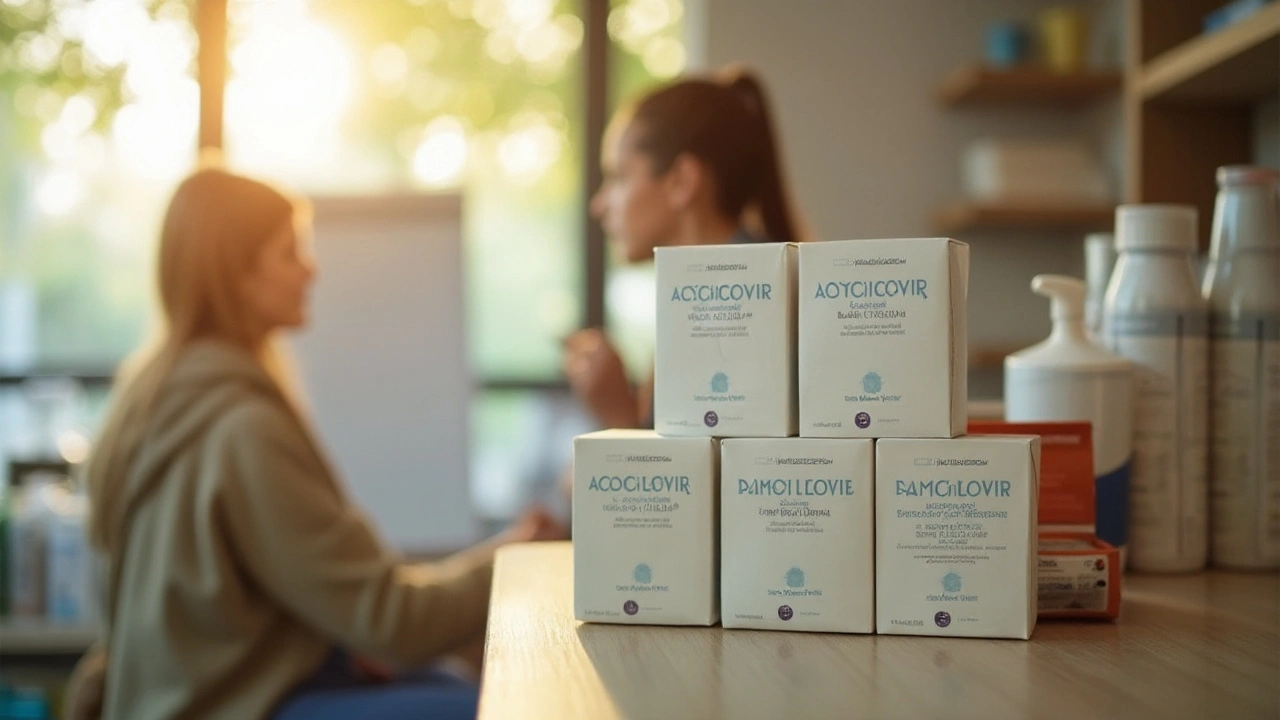Herpes medication: what works, how to use it, and staying safe
Most herpes infections can be managed well with medicines. Treatment won’t cure the virus, but the right drugs cut pain, heal sores faster, and lower the chance of spreading it. This page gives clear, practical info on the common meds, typical dosing, side effects to watch for, and how to buy medicine safely.
Quick drug rundown
Acyclovir, valacyclovir, and famciclovir are the main antiviral pills doctors use. Typical starting regimens for genital outbreaks look like this: acyclovir 400 mg three times daily for 7–10 days (or 200 mg five times daily), valacyclovir 1 g twice daily for 7–10 days, or famciclovir 250 mg three times daily for 7–10 days. For cold sores, topical options include docosanol 10% cream (OTC) and prescription topical antivirals for select cases. For people with frequent outbreaks, daily suppressive therapy (for example valacyclovir 500 mg once daily or 1 g once daily in some cases) can cut recurrences and lower transmission risk substantially.
Side effects are usually mild: headache, nausea, or stomach upset. People with kidney problems or older adults may need dose adjustments — staying hydrated helps the kidneys handle these drugs. If you notice confusion, severe rash, or signs of kidney trouble, contact a clinician right away.
Practical tips, safety, and when to see a doctor
If you have your first outbreak, see a healthcare provider for diagnosis and the right prescription. Seek urgent care if a newborn is exposed, symptoms are severe, you’re immunocompromised, or sores won’t heal. For pregnant people, talk to your OB — some antivirals are used safely under medical supervision, especially near delivery.
Over-the-counter pain relief (ibuprofen or acetaminophen), cool compresses, and sitting in warm baths can ease discomfort. Avoid sexual contact and oral contact while sores are present. Daily suppressive antivirals reduce the chance of passing the virus to partners, but condoms and avoiding contact during outbreaks add important protection.
Buying meds online? Only use licensed pharmacies that require a prescription and show clear contact details. Beware of sites offering prescription drugs without asking for a prescription or with unusually low prices — they may sell fake or unsafe medicine. If you’re unsure, check for verified pharmacy seals or ask your local pharmacist for guidance.
Short, useful checklist: get a proper diagnosis, start antivirals early in an outbreak for best effect, stay hydrated, follow dose adjustments if you have kidney issues, and buy meds from licensed sources. If anything feels off or you have repeated severe outbreaks, talk to a clinician for a tailored plan.

